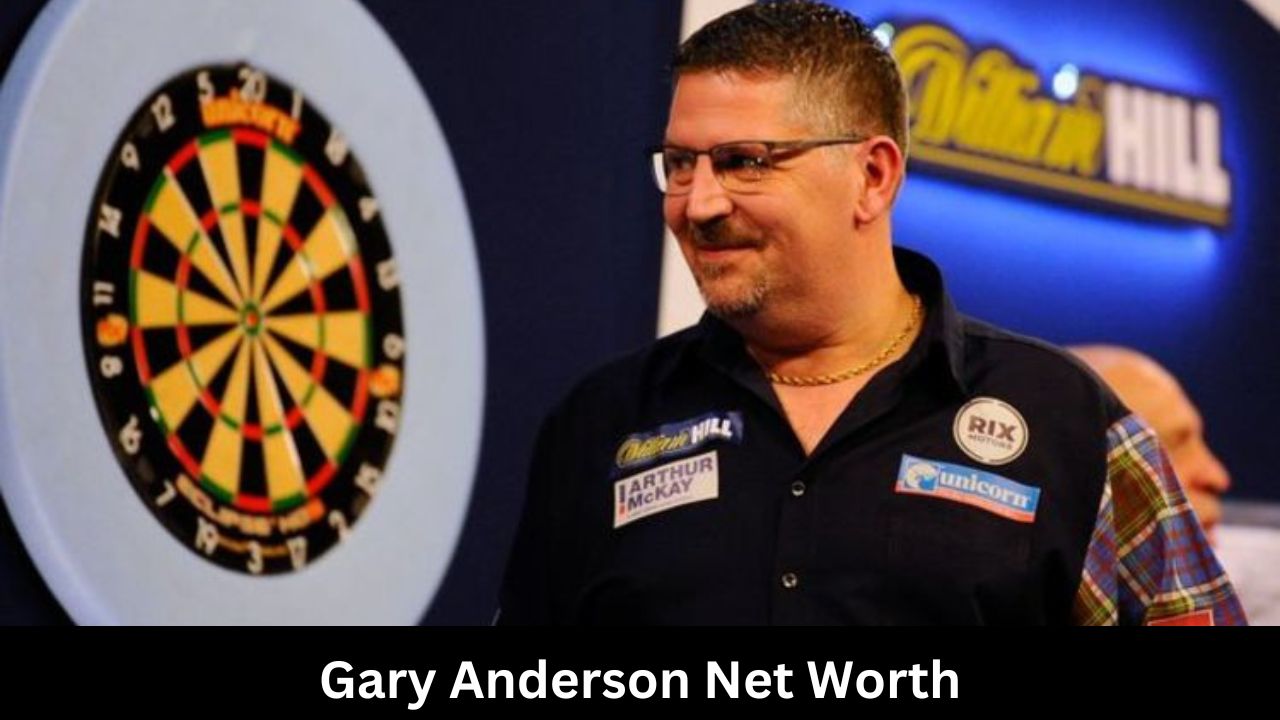Gary Anderson has become one of the greatest darts players of his era and an icon within professional darts, known as ‘The Flying Scotsman. His rise from humble beginnings to becoming two-time PDC World Champion stands as an inspiring testament of skill and commitment.
What Drives Gary Anderson’s Success in Darts?
Anderson has found great success playing darts due to his heavy scoring and smooth throw – hallmarks of his signature playing style. Notably, in 2015 and 2016, he achieved darting’s pinnacle by winning both PDC World Championships. Victories over legends Phil Taylor and Adrian Lewis underscore his talent and mental fortitude; something made even more impressive by Anderson appearing consistently as finals player since 2011.
How Has Anderson’s Early Life Influenced His Darts Career?
Born December 22 in Musselburgh, United Kingdom on December 22, 1970, Anderson led an unlikely childhood before darting fame struck in 2003. Working as a builder at first before dabbling with darting, Anderson found strength from humble roots despite suffering the tragic death of his father in March 2012: Hibernian FC represents this heritage; Jocky Wilson bestowed him the name ‘Flying Scotsman’ to reflect this identity while reflecting Anderson’s swift playing style and swift darting ability.
What Are Anderson’s Major Milestones in Darts Career?
Anderson’s career is marked with numerous distinctions. After winning the Welsh Open in 2001 and many BDO and PDC events such as International Darts League, World Darts Trophy and Zuiderduin Masters events respectively; among many more milestones like Premier League wins 2011-15 as well as Players Championship Finals 2014, and UK Open 2018. All these accomplishments solidified Anderson as one of darts’ heavyweights; by February 2020 alone he had amassed 31 PDC Pro Tour event wins making him an iconic figure within darts sport!
How did Anderson Make His Switch From BDO to PDC?
Anderson’s transition from British Darts Organization (BDO) to Professional Darts Corporation (PDC) marked an exciting new chapter of his career, with his three dart average reaching an astonishing 107 on his PDC debut performance. Not only was this an important move for Anderson but it also intensified competition within PDC, creating another layer of excitement among darts enthusiasts worldwide.
What Are Anderson’s Major Tournament Challenges and Triumphs?
Anderson has experienced ups and downs during his darts career. At major tournaments he has experienced both breathtaking victories and heartbreaking losses; reaching his first PDC major final at UK Open 2010 as well as subsequent matches against darts giants showcases its competitive spirit; even after setbacks like early first-round losses at World Matchplay and European Championship, Anderson remains resilient – always showing great tenacity to come back stronger from each setback than before.
How Has Anderson Represented Scotland Internationally Through Darts?
Anderson is proud to represent Scotland internationally in darts competition, especially as an Olympic qualifier and six Nations Cup participant. His outstanding contributions in WDF World Cups, Europe Cups, Six Nations Cup and Six Nations Cup tournaments illustrate Scotland’s standing within darts world – his victories at Six Nations Cups and WDF Europe Cup events show just how significant Anderson is for Scottish darts! His match record attests this importance he brings.
What Is Gary Anderson’s Legacy in Darts?
Anderson left an indelible mark on darts not just through championship titles but through his influence and impactful three-dart average in official tournaments – it became an industry standard benchmark and provided inspiration to younger darts players and fans. From humble pub player to world champion and beyond – Anderson inspired many with both perseverance and skill en route to great victory! His legacy remains strong today with new generations of dart players taking up darts due to him!
Gary Anderson’s journey in professional darts is truly extraordinary: from early days in Musselburgh through to his two PDC World Champion titles and beyond he has not only cemented himself into history but inspired countless others as well. His legacy will undoubtedly continue influencing darts for years to come.
